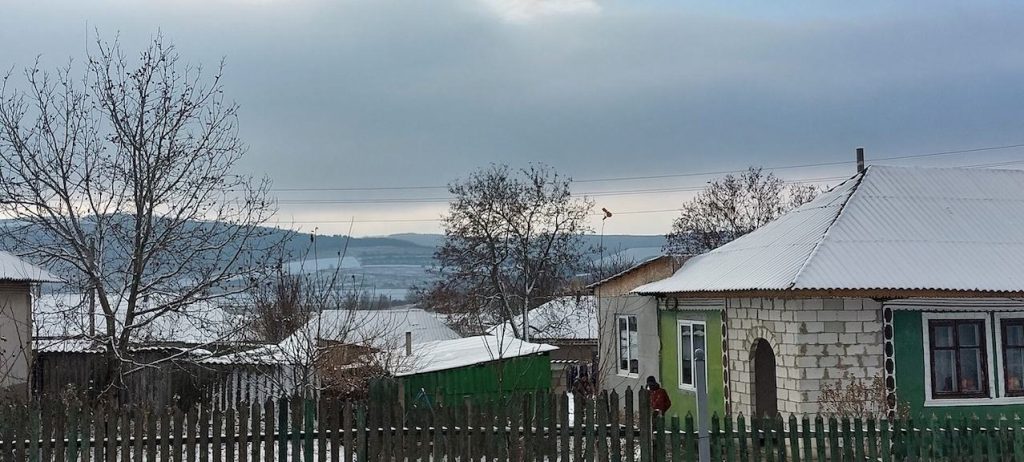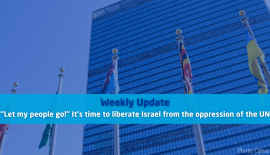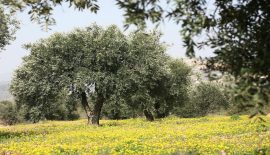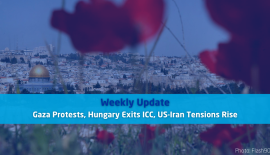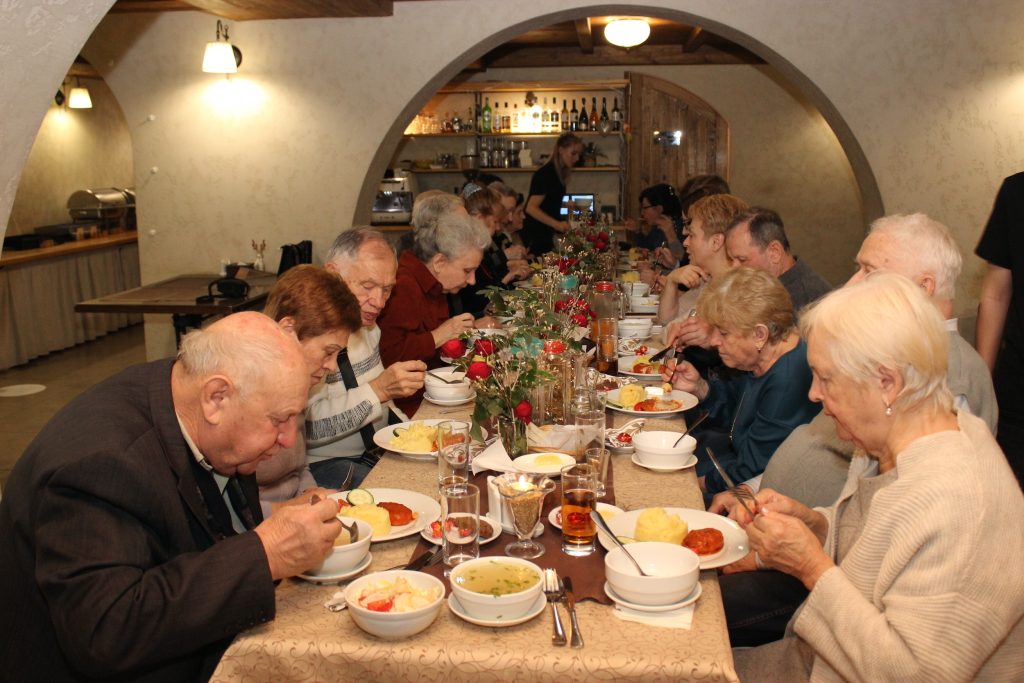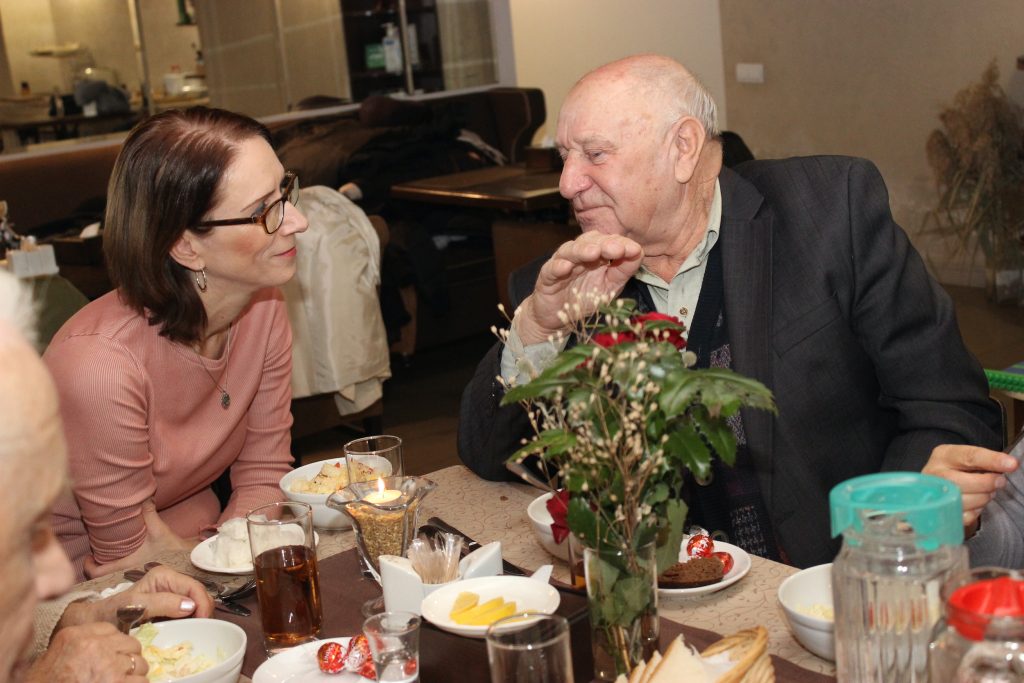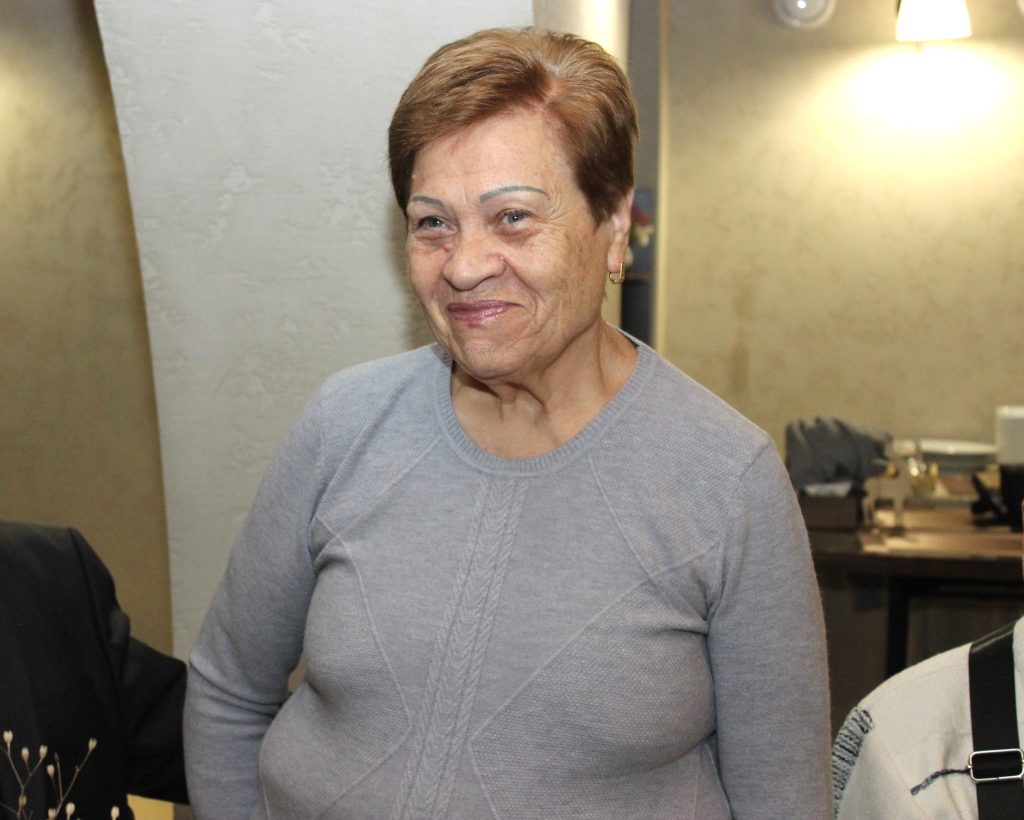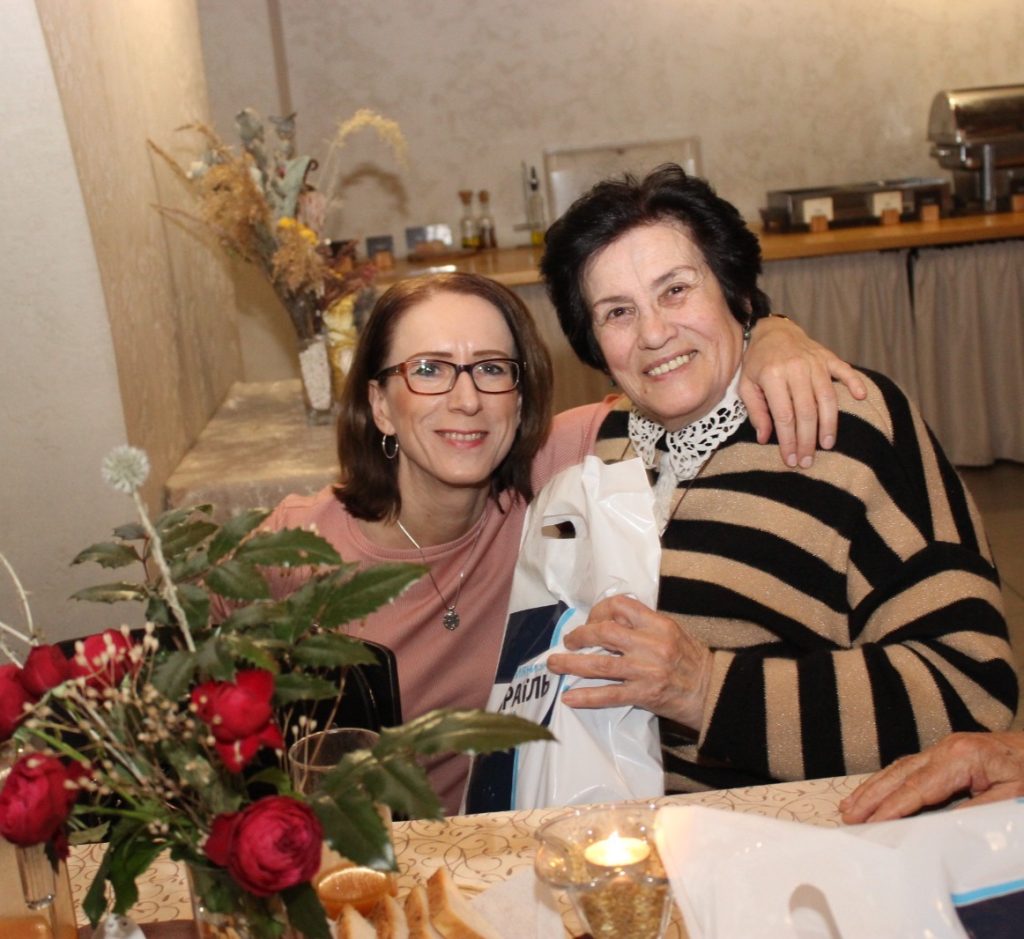The wonder of Hanukkah celebrated in Odessa
Many an obstacle must be overcome nowadays to reach Odessa in winter. The border crossing from Moldova to Odessa in Ukraine has been closed for days due to snow drifts. In war times, all planning is tentative. But the effort is worth it for a Hanukkah celebration with Holocaust survivors who are waiting for us in this Black Sea city with its rich and tragic Jewish history.
Shortly before I left for Eastern Europe, the Moldovan border crossing at Palanca in the direction of Odessa was still closed due to ice and snow. Today, only the fog hangs between the rolling hills of southern Moldova; here and there a strip of white shimmers on the fields.
A friendly driver from our partner organization Esra helps out and takes my Ukrainian colleague Alina and myself to the border in two hours. Our next prayer is that we can cross the checkpoint without any difficulties – for the first time on foot. Our Ukrainian driver Kolya is not allowed to leave Ukraine due to the mobilization law; he is waiting on the other side. Then another scenario unfolds. “There’s an air alert all over Ukraine right now,” Alina says. “Who knows if they’ll even let us in. If things go badly, they’ll keep us at the border for three or four hours until the all-clear is given.”
Adventurous journey
Within 20 minutes we are on the Ukrainian side. But instead of Kolya, we see an endlessly long queue of vehicles behind the border checkpoint. The trucks have been waiting for days, we are told. We are not worried at first – after all, Kolya doesn’t want to cross the border. Only after many phone calls and negotiations with the border guards do we learn that there is a 6-kilometer security zone before the border crossing, which Kolya is not allowed to enter. Walking is forbidden on the road. Cabs are not allowed in the zone. The authorities have obviously not given much thought about how the onward journey is supposed to work.
One car after another drives past. Nobody wants to give us a lift. Suddenly a bus does stop, and a few minutes later we are reunited with the second half of our team, who have been waiting for us on the Ukrainian side for hours. We check into the hotel, eat dinner in the “Shalom” restaurant – a culinary piece of Israel in Odessa – buy chocolates and decorations for the following day and endure the almost obligatory air alarm at 11 pm.
A very different first Advent
Although there is no Advent wreath, no pyramids and no candle arch, I have perhaps never celebrated the first Sunday of Advent so beautifully and close to God’s heart. “Behold, your King is coming to you” is the scripture we find in the morning’s Daily Light reading from Zechariah 9.
Roman Shvartsman, who chairs Odessa’s Holocaust Survivors Association, has invited 20 survivors on our behalf. The atmosphere is filled with anticipation. Not until later do we hear that there was another air raid during our gathering. We are definitely in the right place with our guests – in the basement of the hotel, which also serves as a security room and restaurant. The table is set with festive decorations picked up in various stores. The flowers are in the vases, the candles in the glasses, the music playing.
Some of the survivors approach us with a bright smile at the door – Viktor Frantsevich, who recently treated us to tea from gold-rim cups after he shared his difficult story; and Malvina, who we visited in October after her daughter had just died.
“These are our dear, our very dear friends,” is how Roman introduces us. “They help us so much! Christians for Israel is an organization that is known throughout the whole Jewish world.” Everyone listens intently as we share where we come from and how much we are looking forward to spending time with our guests. There is no ice to break. Hearts are wide open – we sit together like at a family celebration. As the first course is served, we spread out and sit down with our guests one by one.
Yuri: Surviving with 5-year-old “big brother”
“I was here in a concentration camp,” says Yuri. He is Roman’s deputy and makes a sprightly impression. “We lived here in the city center, on the corner of Deribas and Yekaterina Street. Then they picked us up and took us to the police station – my mother Shifra, my brother Anatoly and me. When we arrived, an officer snatched me from my mother’s arms. She screamed and reached out for me. That’s when they shot her.”
Yuri radiates such kindness and talks to me as if he has had a completely normal life. From the Odessa prison, he was sent to the Slobodyanka camp with his 5-year-old older brother. “They would round up groups of 5,000 Jews at a time, cram them into wagons and shoot them in the Domanovka camp,” Yuri says. “Eventually we were in the queue too. At the last moment, someone pushed me and my brother into the crowd of onlookers. That’s how we were saved – from family to family who hid us in their homes.”
For a long time, Yuri’s father knew nothing about his two boys. “Dad was Russian,” says Yuri. “The Germans forced him and many others to dig trenches. Then they found out that he had saved the lives of many Jews by issuing false passports. They sentenced him to five years of hard labor. Thirteen of my mother’s family were burned alive in Odessa.”
Anna: Enduring the Domanovka concentration camp
Yuri swaps places with his neighbor Anna so that I can talk to her. “Maria Abramovna was my mother’s name,” Anna begins. For the time being, she leaves her father aside. “Mom was pregnant with me when the war started. And she already had my two brothers. She didn’t manage to escape with the children. Grandpa was able to flee to Tashkent with mom’s sisters; grandma had died very young. Mom was sent to the Odessa prison with the children. That’s where I was born.” Anna also talks as if she is sharing a completely normal story with me.
“Then we were sent to the Domanovka concentration camp, a short distance from Odessa. The Romanians were in Odessa, the Germans were at the camp. But we were better off there. Mom could speak Romanian and German. She worked there as a translator. There was a decent German there who helped her. Mom was only wearing rags. He gave her a piece of fabric from an old uniform or something so that she could make herself a skirt. It turned out that the German coat of arms ended up on her bottom. When this guard was on leave, his deputy wanted to shoot us all. But then this German came back at just the right moment and saved our lives.”
Life didn’t improve much for Anna after they were freed and her father returned from the war. “He had been at the battlefront the whole time. He was a sadist. He sometimes beat me half to death. Once he threw an axe at me. Can you see the scar here on my face?”
Anna is widowed; she has no children. And yet there is a warm smile on her face – not a trace of bitterness. “My sister lives in Israel with her family. But I don’t want to leave. The survivors, the Jewish community here – that’s my family.”
We go from guest to guest, from story to story, while soup and salad, coffee and cake are served. “I’m so happy to see you again!” says Malwina. “Your photo is in my display case. I look at it every day and pray for you.”
Once again, Mom’s home-baked waffle hearts touch people’s hearts, and the gift bags with the beautifully dressed hot-water bottles put a big smile on the faces of our guests.
About 100 survivors, half of his contact list, are still fit enough for a gathering like this, says Roman. Time to plan our next events.
